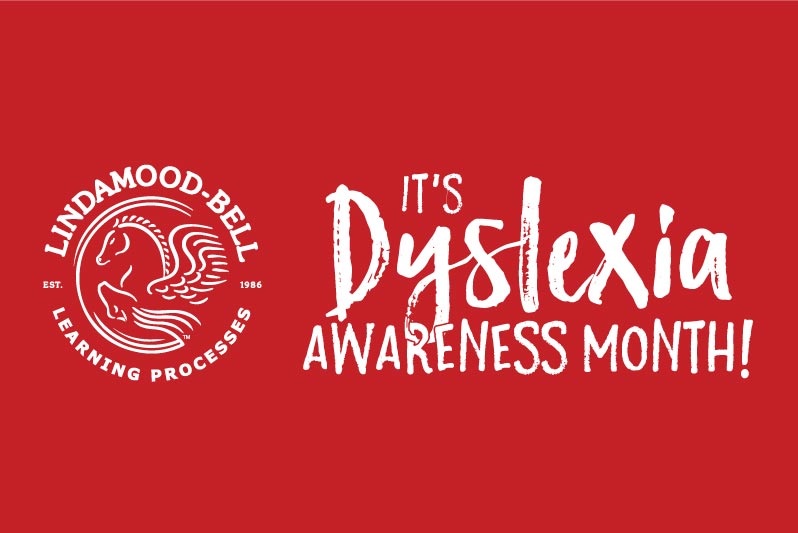“Will he ever learn to love reading?” | Frequently Asked Questions from Parents of Children with Dyslexia

For Dyslexia Awareness Month we are sharing our belief that all individuals can be taught to read to their potential—including those who have a previous diagnosis of dyslexia.
Over the course of nearly three decades, Lindamood-Bell has worked with thousands of individuals. Sitting with a child or an adult who struggles to read a word provides unique insight into the learning process. Our success with students is due to our unique approach, including our research-validated, sensory-cognitive instruction. Below we’ve answered some questions parents of students with dyslexia often have.
Q: “He hates reading. How do I get him to do it?”
A: For struggling readers, books don’t yet bring joy. Rewarding him for the reading he’s done can help motivate him while also providing needed fluency practice. Track the number of pages or minutes read with stickers, points or something he enjoys (i.e. printed “Minecraft creepers”). Decide as a family what the reward will be — it could be a toy or game, extra screen time, one-on-one time with a favorite adult or getting to choose what’s for dinner on Friday night. Work with your child to find something that works for your family.
Q: “Can I just read to her?”
A: There are lots of benefits to reading to your child, but doing so won’t help develop her fluency skills. Set up a system where you both can read. Maybe she reads from something that’s at a comfortable level, and then you read a chapter of Lemony Snicket. You can also take turns reading: switch every paragraph, you read two pages, she reads one etc.
Q: “What if he makes a mistake? Do I interrupt?”
A: You can let some small errors go! Changing “the” to “a” is something that happens even to good readers. As long as it doesn’t change the meaning of the text, there’s no need to stop him. For errors that affect meaning (i.e. reading “protect” as “project”), you can ask a question to help him monitor his own accuracy. “Did that make sense?”
Q: “All of the books at her level are boring. Should I let her read Harry Potter? What if she gets frustrated?”
A: Children with dyslexia often are very bright with strong comprehension, which can make finding a “right fit” book challenging. Having her read a book that is far above her reading ability will most likely lead to frustration and dampen her desire to read. More challenging, higher level books can be the kind you read to her. Having her practice her fluency with more manageable books may allow her the confidence and skill to find out what’s happening at Hogwarts on her own soon enough. Once you find a book she likes, check out What Should I Read Next to find some suggestions of other books she might enjoy.
Q: “He keeps saying he’s stupid. Do I just ignore it?”
A: When a child continually works harder than his peers to read — and doesn’t feel successful — it’s easy to see why his self-esteem might plummet. Listening to and acknowledging his feelings is as important as reminding him of all his strengths and talents. For more tips on navigating this tricky scenario, click here.
Q: “Is it EVER going to get easier?”
A: Some dyslexic students may need more than extra time on tests or being able to hear the questions orally. A cause of difficulty in establishing sight words and contextual fluency is difficulty in visualizing letters in words. This is called weak symbol imagery. A significant number of students—even those who have well-developed phonemic awareness—have difficulty with rapidly perceiving sounds in words, and are slow to self-correct their reading errors. It can be helpful to get a picture of your child’s individual strengths and weaknesses through a Learning Ability Evaluation in order to know the best way to support him.
Though many individuals come to us just to make learning easier, we are thrilled to be making a difference in the lives of our students who have a diagnosis of dyslexia. Hear from a mom who found a solution and a school at our Academy:
Lindamood-Bell has partnered with many universities to examine the effects our sensory-cognitive instruction has on the brain. To read more about the studies involving dyslexia, click here.






